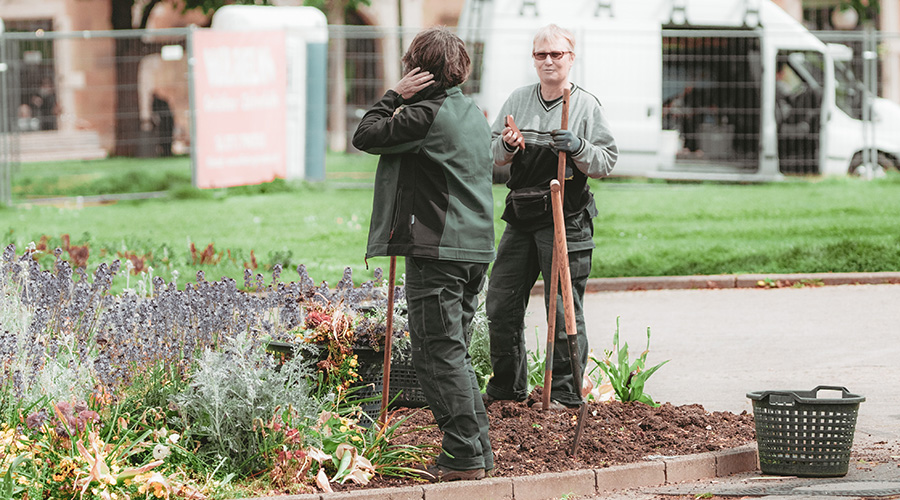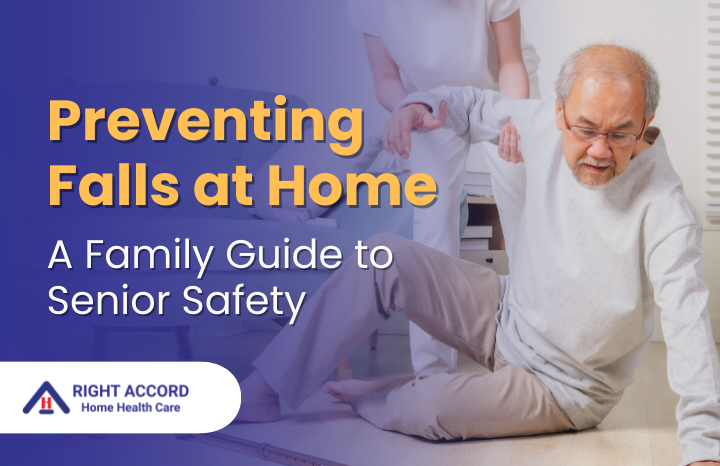· 7 min read
7 Best Practical Tips for Effective Elderly Home Care Today
Providing elderly effective caregiving means addressing their needs and improving their lives without ruining your own. Here's the 7 best tips you can use today.

By: Rosemarie Tamunday Casanova — RN, BSN, MHA
Providing elderly effective caregiving means addressing their needs and improving their lives without ruining your own. In fact, some people can become so devoted to providing for the needs of the elderly that they tend to ignore their own needs.

Despite the difficulty of the task, proper knowledge of effective caregiving methods can help provide a more convenient and healthy life for your elderly family members. Getting started with effective caregiving involves learning as much as you can about how it works. After all, as a caregiver, you hold a great deal of responsibility for another human being.
Here are the 7 best practical tips to help you provide effective caregiving to the elderly.
1. Understand The Basic Needs Of The Elderly
When people reach a certain age, they tend to develop limitations in their capabilities and functions. When they become incapable of performing their regular duties, they will often need assistance from others. For someone charged with taking care of an elderly person, the need to require physical assistance can be just as difficult as it is for someone who needs their physical support.
A good way to provide elder care and assistance is to understand their needs. While there might be unreasonable demands at some point, it is only a continuation of their desire to realize goals they still wish to accomplish themselves. You probably understand the feeling of not having control over what you can do and having to depend on others constantly to achieve certain goals if you have been accustomed to being independent. Thus, caregivers for elders should know how to tailor their services to boost an elder’s confidence about their ability and to make them more trusting of them.
2. Set Right Boundaries On Your Time And Attention
Among the important considerations to be discussed with the elder you are caring for is that you cannot be available for them whenever and wherever they want. The first step for you would then be to create reasonable limits on when and how you provide service to them. Setting your boundaries is essential as this will also affect how they set their demands.
They cannot expect you to provide the care and service for them whenever they want. Learn how to deal with these minor demands. If you don’t give in to them, they will eventually stop. There is a tendency, however, to cave in as long as they continue to press too hard in their demands. Whenever possible, find alternatives to your parents’ demands, especially if you are caring for them and tempted to give in to their demands.
Consider how you can balance attending to their needs and managing your personal business.
3. Respond Smartly With Their Unnecessary Demands
Occasionally, your elderly parents will ask for unreasonable things from you as a caregiver. Rather than beating yourself up over these demands, look at the more important needs you can meet for them. It is possible that despite your best efforts, they will eventually demand more, to the point where your failure to meet their demands both disappoints you and them.
You also need to set limits when it comes to the type of service you are going to provide for them, just as you did when you offered your time to serve and care for them. You don’t have to ignore their needs, but you do have to recognize which kinds are essential and which aren’t.
You can take them on various activities to make the most of their remaining years together. There are several agencies or non-profit organizations that offer activities and services for the elderly that you cannot find on your own. You can find professional caregivers here who can assist you in any way possible so that you can improve how you take care of yourself.

4. Keep A Positive Attitude Towards Their Complaints
When setting boundaries or limits, remember your elders and try to be understanding and compassionate. Imagine yourself in their position, and determine why they make these demands. It is important to learn to manage your emotions on those occasions when they make unfriendly or insulting remarks about what you have done or failed to do for them.
Maintain a positive attitude and redirect your attention to avoid being affected by such remarks. Talk to them about such negative thoughts if you cannot overcome them. Feel free to express your feelings about their reaction and your genuine concern for their needs and demands. In their situation, the best way to approach them is to talk straight to them about the difficulties and challenges that come from meeting their demands.
5. Practice Right Tolerance Towards Their Extreme Behaviors
Aging people tend to exhibit extreme behaviors that might make people lacking patience erupt quickly. The majority of elderly individuals suffer from dementia, which results in unusual behavior. In the event that an elder you’re caring for behaves in a way that is not normal for them, you should seek out professional assistance. This will benefit you as well as your elderly loved ones, since you will feel less frustrated and they will receive the help they need immediately.
In cases of extreme behavior, inform the elder about the behavior so that they can prevent it from happening again. If someone uses foul language or raises their voice, never respond with foul language yourself. When you can’t hold your temper, walk away and let your mind calm down until you are capable of handling the situation calmly.

6. Learn To Use And Implement Mindful Communication
You don’t need to be afraid to have that tough conversation with your loved ones about end-of-life care. Talk to your loved one about the type of treatment they receive and where they would like to receive it using the tools and resources available online.
The elderly person you care for probably does not want you in their house 24 hours a day. While some people require constant attention, the majority of people prefer to be alone and will only do so until they reach a point where they feel threatened. Majority of elderly people value their independence very highly, especially when they feel it is being taken away from them. You should always respect their wishes by letting them know when you will visit and what you will do together on a particular day. However, this does not apply to those caring for the elderly in retirement homes.
7. Take Part In Activities That You Both Enjoy
These activities create a bond between you and the person you care for by leveraging your common interests and developing a strong basis on which to coexist. When caring for a stranger, it is fundamental to getting to know them properly. If you’re looking after a family member, it’s likely you’re giving him or her joy just by spending time there.

Photo by Marcel Strauss on Unsplash
Shopping together can be a practical activity and can be considered as a form of exercise if he or she is walking around the supermarket. In addition, other activities that get individuals outside, like walking dogs and gardening, can improve health over time. All of these activities will stretch out joints and ease stiffness and immobility. This also improves general health because it gets the blood flowing!



